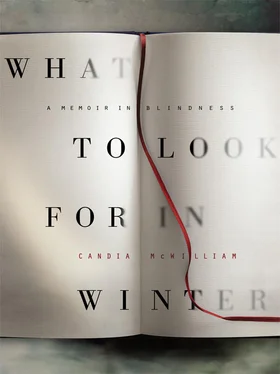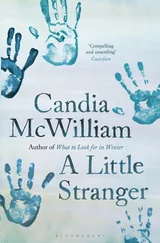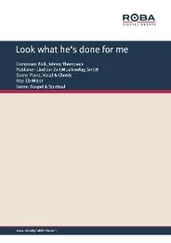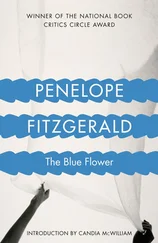The Folly, West Drive, Sonning-on-Thames, Berkshire, was England to me, and how it scared and stifled me. I could not then have placed what it was about this single-storey brick residence made, as I could never forget, with my grandfather’s blood, toil, tears and sweat, that took the air out of me but I never entered it without knowing I was going into another country where they did things differently. I recognised the claustrophobia when encountering it again in Elizabeth Bowen’s great wartime novel about escape from a certain England, The Heat of the Day . There is in it a house called Holme Deane, that is not The Folly, naturally, but has some of its effect.
I don’t eat ham or pork, sausages or bacon. I have a number of Jewish friends who really like sausages or will eat a bacon sandwich. My refusal to eat pig-meat started off as a gesture of wholly pointless identification, and maybe its motives aren’t as grand as I thought they were, when I was seven. Maybe they are a pettifogging, grandiose and utterly pointless boycotting of a certain England. I was scared of the flatness, the enclosure, the sense of being tinned. One could not, as in a home in the North, stretch and shout and breathe in and out. One was in a tin and on a shelf and set in place, the place to be, to sit and stay sat, set.
Ham and salad was what we had for lunch at The Folly, the ham like big wet hangnails, the salad made of units, one lettuce leaf, a quarter of tomato, a slice of egg, a pinch of cress, and that incontinent flitch of beetroot. My father loved Heinz Salad Cream and got his lunch down with the help of this; for pudding it was ice cream and tinned fruit salad. This was for the times a perfectly festive family meal. My mother had spoiled me by her Italianising of our life, her olive oil, aubergines, herbs. At The Folly, meals were taken because what you did at one o’clock was have lunch. It was almost an act of patriotism, a contribution to the resettlement of the world post-war, the healing deployment of routine against chaos or otherness.
My father, never a fan in other circumstance of healthy food, would ‘forget’ not to say, ‘Do you know, Clare, that Wall’s make pork pies too and that this ice cream is probably — delicious of course — pork fat with a bit of air whipped in?’ This was mean of him as he consumed quantities of Wall’s all his life, regarding it as a special delicacy not perhaps related to real ice cream, certainly not to ice cream in Italy or as made by the Italian immigrants to Scotland, Mr Lucca at Musselburgh, Mr Coia at the end of the Crescent, Mr Nardini at Largs, but certainly a treat in itself. This was the man, after all, who, when Lyons Maid brought out the new line in lollies they called a Fab, with hundreds and thousands on the chocolate tip, spent a weekend afternoon chasing one down.
I think my Christian name was a bother to my Henderson grandparents. It was ostentatious, foreign and pretentious; they had not heard it before. Grandpapa did not like what he did not know. Of course they were defensive; there had just been a world war; they had but the one child, who seemed to have decided to marry a man who was not only uninterested in making money but deprecated the process and the idea of a society arranged around it.
My grandmothers addressed one another as ‘Mrs Henderson’ and ‘Mrs McWilliam’.
It is all unspeakable and it was all about class, tone and education. My maternal grandmother, despite her beauty, a dowry that can re assure a man who purchases it that there has been a straight swap with no small print, was cleverer than she dared show her husband. He was older and controlled the purse-strings. She cleaned the house, starting at five in the morning every day, wearing what she called a ‘house dress’ before she changed into her proper — on show — clothes for that day’s part, and brushing her regrown waist-length hair one hundred times before dividing it into six, making plaits and coiling it up like Dorothea Brooke’s crown of hair in Middlemarch . She did the housework daily like this although there was Ernest’s wife Florrie to ‘do’ for her. Yet it was at The Folly that I found one of the books that changed my life. It had been my mother’s. It was a big coral-coloured cloth-bound book containing black-and-white reproductions of old master paintings and modern works with captions encouraging you to look harder into the picture. It had been published during the war and has something of the perspicacity of Kenneth Clark’s One Hundred Details . It was written by someone called Ana M. Berry and now belongs to my children. It must have taken faith in civilisation to produce such a book at such a time. Its name is Art for Children .
All her frustration my grandmother poured into systems of control that eventually grew inwards and harmed her. She was so proud; she would like it to be said of her that she never took a penny from the state, that her home was spotless, that she was a good wife, that she had kept her figure, that she wasted nothing. I think now that inside her stone self was a good deal more sweetness. I think that she was lonely and used pride and dignity to kill pain, in so doing closing over her heart an awful fist of calcification till it resembled flint and was not. All the creative dash she had been born with in the Mile End Road, where she’d kept her ponies as a little girl, she turned to producing light opera and operetta for the Sainsbury Singers of Reading, who became as family to her.
McWilliams think Verdi vulgar (I don’t. Don Carlos is my favourite). I learned about my father not caring for Verdi at the very start of the existence of the Sony Walkman. Daddy was in a ward of old men after his stroke. I flew north to see him with this exciting new invention and a stack of Verdi on tape, all in cellophane. Daddy, who had an immoderate passion for the NHS, was even quite chatty to me, and introduced me to a new friend he had made in the next-door bed.
‘Bob, this is my daughter, Candy’, said Daddy. ‘She is not a very keen swimmer as far as I know.’
He explained to me later, as he ate with real gusto his eleven o’clock lunch of Finnan haddock with extra bones and mashed tatties, ‘Bob likes girls. His daughter was a local swimming champion. He had an unfortunate experience with her and was sent to prison. He’s a charming fellow. Do you like Verdi, Candybox? I don’t think I could bear him at all up close.’ Long before it was fashionable to be keen on Handel as a composer of opera, Daddy was. I took my Verdi tapes back to England. We never had the time together to find that we both adored Britten and that I am nearing his feeling that Richard Strauss is the sexiest of composers, though I first met him in the Four Last Songs when I was sternly above sex, being fifteen and torridly in love, at that point, with one who was as remote and cool as the North Star.
I do not know why music should cause more curdling in matters of taste than literature, but so it sometimes seems. My parents’ parents each mistrusted the other’s form of musicality, taking it, unfairly and unsubtly, on either side, as a metaphor for much more.
I loved each of my grandmothers for physical reasons: my McWilliam grandmother had a nice little bob held in place with a kirby grip and read nineteenth-century novels to me; she had catch-phrases such as ‘Would patrons care for a cup of hot chocolate?’, and ‘Would you v.s.k. close the door?’ where v.s.k. stood for ‘very sweetly kindly’. My Henderson grandmother I loved for her waistline, her ankles, her deep voice, her extraordinarily stagey diction; but I knew to be afraid of her. She believed in posture, in scouring, and in never complaining. I never sensed that she had faith in anything but the joy music gave her and in discipline, while my other grandmother was suffused by her religious faith and knew and played ecclesiastical music.
Читать дальше











